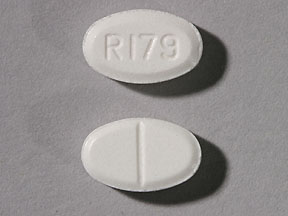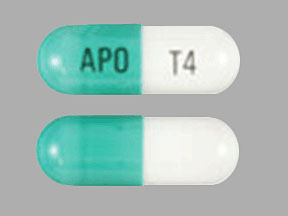Tizanidine is a short-acting muscle relaxer. It works by blocking nerve impulses (pain sensations) that are sent to your brain.
Tizanidine is used to treat spasticity by temporarily relaxing muscle tone.
Tizanidine may also be used for purposes not listed in this medication guide.
Generic Name: tizanidine (tye ZAN i deen)
Brand Names: Zanaflex

Important information
Tizanidine is a short-acting medication that should be taken only for daily activities that require relief from muscle spasticity.
You should not take tizanidine if you are also taking fluvoxamine (Luvox) or ciprofloxacin (Cipro).
Do not use tizanidine at a time when you need muscle tone for safe balance and movement during certain activities. In some situations, it may endanger your physical safety to be in a state of reduced muscle tone.
Switching between tablets and capsules, or changing the way you take it with regard to eating, can cause an increase in side effects or a decrease in therapeutic effect. Follow your doctor’s instructions carefully. After making any changes in how you take tizanidine, contact your doctor if you notice any change in how well the medicine works or if it causes increased side effects.
Do not take more than three doses (36 mg) of tizanidine in a 24-hour period. Too much of this medicine can damage your liver. Cold or allergy medicine, narcotic pain medicine, sleeping pills, other muscle relaxers, and medicine for seizures, depression or anxiety can add to sleepiness caused by tizanidine.
Avoid drinking alcohol. It can increase some of the side effects of this medicine.
Although people usually tolerate tizanidine well and find that it can provide relief, muscle relaxants can sometimes cause side effects. Therefore, it is important that people follow the dosage that their doctor recommends.
Generally, doctors will recommend that people start at 2 milligrams (mg) per dose and gradually increasing this amount until they get optimal relief. If necessary, individuals may take the medication three times per day — with 6–8 hours between doses — but the dosage should not exceed 36 mg a day.
Common side effects of tizanidine include dry mouth, drowsiness, fatigue, and dizziness. The main warnings associated with the drug are the risk of low blood pressure and liver damage.
In this article, we discuss tizanidine in more detail, including its uses, dosage, side effects, and drug interactions.
Before taking tizanidine
You should not use tizanidine if you are allergic to it, or if:
- you also take the antidepressant fluvoxamine (Luvox); or
- you also take the antibiotic ciprofloxacin (Cipro).
To make sure this medicine is safe for you, tell your doctor if you have:
- liver disease;
- kidney disease; or
- low blood pressure.
It is not known whether this medicine will harm an unborn baby. Tell your doctor if you are pregnant or plan to become pregnant.
It is not known whether tizanidine passes into breast milk or if it could harm a nursing baby. Tell your doctor if you are breast-feeding a baby.
Tizanidine belongs to a class of drugs called central alpha-2 adrenergic receptor agonists. It is a fast-acting muscle relaxant that doctors commonly prescribe to help manage muscle spasticity.
It works by increasing the inhibition of motor neurons in the brain, which are the nerve cells that send messages to muscles to contract. Although the drug has no direct effect on muscles, its inhibition of motor neurons indirectly causes the muscles to relax.
What are Common Tizanidine Hcl Doses?
- Tablet 2MG
- Tablet 4MG
- Capsule 2MG
- Capsule 4MG
- Capsule 6MG
- Bottle 100GM of
Common tiZANidine HCl Prescriptions




How should I take tizanidine?
Take tizanidine exactly as it was prescribed for you. Follow all directions on your prescription label. Your doctor may occasionally change your dose to make sure you get the best results. Do not use this medicine in larger or smaller amounts or for longer than recommended.
You may take tizanidine with or without food, but take it the same way each time. Switching between taking with food and taking it without food can make the medicine less effective or cause increased side effects.
Switching between tablets and capsules can also cause changes in side effects or how well the medicine works.
- Taking the tablets with food can increase your blood levels of tizanidine.
- Taking the capsules with food can decrease your blood levels of tizanidine.
Follow your doctor’s instructions carefully. After making any changes in how you take tizanidine, contact your doctor if you notice any change in side effects or in how well the medicine works.
Tizanidine is a short-acting medication, and its effects will be most noticeable between 1 and 3 hours after you take it. You should take this medicine only for daily activities that require relief from muscle spasms.
Do not take more than three doses (36 mg) in a 24-hour period. Too much of this medicine can damage your liver.
You will need frequent blood tests to check your liver function.
If you stop using this medicine suddenly after long-term use, you may have withdrawal symptoms such as dizziness, fast heartbeats, tremors, and anxiety. Ask your doctor how to safely stop using this medicine.
Store at room temperature away from moisture and heat.
What happens if I miss a dose?
Take the missed dose as soon as you remember. Skip the missed dose if it is almost time for your next scheduled dose. Do not take extra medicine to make up the missed dose.
What happens if I overdose?
Seek emergency medical attention or call the Poison Help line at 1-800-222-1222.
Overdose symptoms may include weakness, drowsiness, confusion, slow heart rate, shallow breathing, feeling light-headed, or fainting.
What should I avoid while taking tizanidine?
Do not use tizanidine at a time when you need muscle tone for safe balance and movement during certain activities. In some situations, it may be dangerous for you to have reduced muscle tone.
Drinking alcohol with this medicine can cause side effects.
This medicine may impair your thinking or reactions. Be careful if you drive or do anything that requires you to be alert. Avoid getting up too fast from a sitting or lying position, or you may feel dizzy. Get up slowly and steady yourself to prevent a fall.
Tizanidine side effects
Get emergency medical help if you have signs of an allergic reaction to tizanidine: hives; difficult breathing; swelling of your face, lips, tongue, or throat.
Call your doctor at once if you have:
- a light-headed feeling, like you might pass out;
- weak or shallow breathing;
- confusion, hallucinations; or
- pain or burning when you urinate.
Common tizanidine side effects may include:
- drowsiness, dizziness, weakness;
- feeling nervous;
- blurred vision;
- flu-like symptoms;
- dry mouth, trouble speaking;
- abnormal liver function tests;
- runny nose, sore throat;
- urination problems;
- vomiting, constipation; or
- uncontrolled muscle movements.
Along with its needed effects, tizanidine may cause some unwanted effects. Although not all of these side effects may occur, if they do occur they may need medical attention.
Check with your doctor immediately if any of the following side effects occur while taking tizanidine:
More common
- Chest pain or discomfort
- fever or chills
- nausea or vomiting
- nervousness
- pain or burning while urinating
- unusual tiredness
Less common
- Blurred vision
- flu-like symptoms
- irregular heartbeat
- itching skin
- kidney stones
- right upper stomach tenderness
- seeing things that are not there
- shortness of breath
- weight gain
Incidence not known
- Continuing vomiting
- general feeling of tiredness or weakness
- headache
- light-colored stools
Get emergency help immediately if any of the following symptoms of overdose occur while taking tizanidine
Symptoms of overdose tizanidine
- Blurred vision
- change in consciousness
- chest pain or discomfort
- confusion
- decreased awareness or responsiveness
- difficult or troubled breathing
- dizziness, faintness or lightheadedness when getting up from a lying position
- irregular, fast or slow, or shallow breathing
- lightheadedness, dizziness, or fainting
- loss of consciousness
- pale or blue lips, fingernails, or skin
- severe sleepiness
- sleepiness or unusual drowsiness
- slow or irregular heartbeat
- sweating
- unusual tiredness or weakness
Some side effects of tizanidine may occur that usually do not need medical attention. These side effects may go away during treatment as your body adjusts to the medicine. Also, your health care professional may be able to tell you about ways to prevent or reduce some of these side effects. Check with your health care professional if any of the following side effects continue or are bothersome or if you have any questions about them:
More common
- Dizziness or lightheadedness, especially when getting up from a lying or sitting position
- drowsiness
- dry mouth
- fatigue
- sleepiness
- weakness
Less common
- Constipation
- nervousness
- sore throat
Taking tizanidine with other drugs that make you sleepy or slow your breathing can cause dangerous side effects or death. Ask your doctor before taking a sleeping pill, narcotic pain medicine, prescription cough medicine, a muscle relaxer, or medicine for anxiety, depression, or seizures.
Tell your doctor about all your current medicines and any you start or stop using, especially:
- acyclovir;
- ticlopidine;
- zileuton;
- birth control pills;
- an antibiotic – ciprofloxacin, gemifloxacin, levofloxacin, moxifloxacin, or ofloxacin;
- blood pressure medicine – clonidine, guanfacine, methyldopa;
- heart rhythm medicine – amiodarone, mexiletine, propafenone, verapamil; or
- stomach acid medicine – cimetidine, famotidine.
This list is not complete. Other drugs may interact with tizanidine, including prescription and over-the-counter medicines, vitamins, and herbal products. Not all possible interactions are listed in this medication guide.
Further information
Remember, keep this and all other medicines out of the reach of children, never share your medicines with others, and use tizanidine only for the indication prescribed.
Always consult your healthcare provider to ensure the information displayed on this page applies to your personal circumstances.
Copyright 1996-2020 Cerner Multum, Inc. Version: 3.01.
